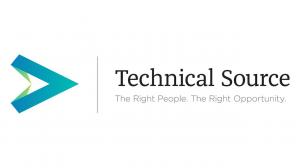
Fintech's AI Surge Triggers Talent Shift: What Employers Need to Know About In-Demand Skills
With the AI in fintech market projected to reach $79.4 billion by 2030 (up from $22.5 billion in 2023), organizations face a dual challenge: leveraging the benefits of AI while closing critical skill gaps. The question is no longer whether to integrate AI, but how to build the workforce capable of doing so.
Where AI is Making the Biggest Impact
Financial institutions are rapidly deploying AI in areas like:
- Fraud detection: Real-time transaction monitoring powered by machine learning.
- Customer service automation: NLP-driven chatbots to reduce wait times and improve satisfaction.
- Portfolio management: Algorithms that adapt and optimize based on live market data.
- Regulatory compliance: Tools that monitor and ensure policy adherence across vast data sets.
These innovations are already being utilized by major firms such as JPMorgan and Goldman Sachs, signaling a clear need for employers to align talent strategies with evolving technical demands.
The Must-Have Technical Skills in Today’s Fintech Hiring Market
To execute on AI initiatives, employers are prioritizing candidates with:
- Machine Learning & Deep Learning: For building scalable models that drive financial insights.
- Natural Language Processing (NLP): Key for customer interface automation and sentiment analysis.
- Data Engineering: Ensures clean, accessible, and reliable data across platforms.
- Cloud Infrastructure Expertise: Familiarity with AWS, Azure, or Google Cloud to deploy AI at scale.
- Cybersecurity Literacy: Protecting data and systems from evolving threats.
This isn’t about building a single AI role; it’s about weaving AI fluency into multidisciplinary teams that can collaborate across technical and business units.
Don’t Overlook the Human Skills - High-performing AI teams aren’t just technically sharp. They also bring:
- Analytical thinking: To scrutinize model outcomes and avoid blind reliance.
- Agility and adaptability: To keep up with evolving tech stacks and workflows.
- Clear communication: For aligning technical efforts with business goals.
- Ethical insight: Ensuring responsible AI development and deployment.
These traits are becoming critical hiring criteria for employers looking to future-proof their workforce.
Bridging the Talent Gap: A Strategic Imperative
According to the World Economic Forum, 40% of the global workforce will need reskilling within the next three years due to AI and automation. Employers that act early—by reevaluating job descriptions, investing in upskilling initiatives, and focusing on potential over pedigree—will be better positioned to lead.
Progressive employers are shifting from degree-based hiring models to skill-based assessments. Hands-on experience, project portfolios, and cross-functional collaboration are increasingly viewed as stronger indicators of success.
What to Look for in Candidate Portfolios
Evaluating for AI capability means looking beyond the resume. Effective indicators include:
- Projects that solve real-world problems, such as predictive credit models or fraud detection systems
- Contributions to open-source AI tools or data science communities
- Experience building or working with live AI systems in production environments
This shift toward demonstrable outcomes helps employers better predict how candidates will perform on the job.
Emerging Roles You Should Be Hiring For
The evolution of AI in finance is generating new roles that merge business insight with technical execution.
Employers are building teams around:
- AI Product Managers: Who ensure AI solutions align with strategic business needs.
- Fintech Data Scientists: Who build models that uncover actionable insights.
- AI Compliance Analysts: Who navigate new regulatory landscapes.
- Ethics and Risk Leads: Who set governance frameworks for responsible AI use.
These roles require hybrid thinkers who can work across departments and keep ethics, usability, and compliance at the center of innovation.
About Technical Source
Technical Source, based in Raleigh, North Carolina, helps organizations build and scale high-impact technical teams across the finance, life sciences, and technology sectors. By understanding both market demands and the nuances of each client’s objectives, Technical Source delivers professionals equipped to drive real-world results. Learn more at technicalsource.com.
Houston Harris
FreshRobot
+1 828-324-1298
email us here
Distribution channels: Healthcare & Pharmaceuticals Industry, IT Industry, Technology
Legal Disclaimer:
EIN Presswire provides this news content "as is" without warranty of any kind. We do not accept any responsibility or liability for the accuracy, content, images, videos, licenses, completeness, legality, or reliability of the information contained in this article. If you have any complaints or copyright issues related to this article, kindly contact the author above.
Submit your press release
